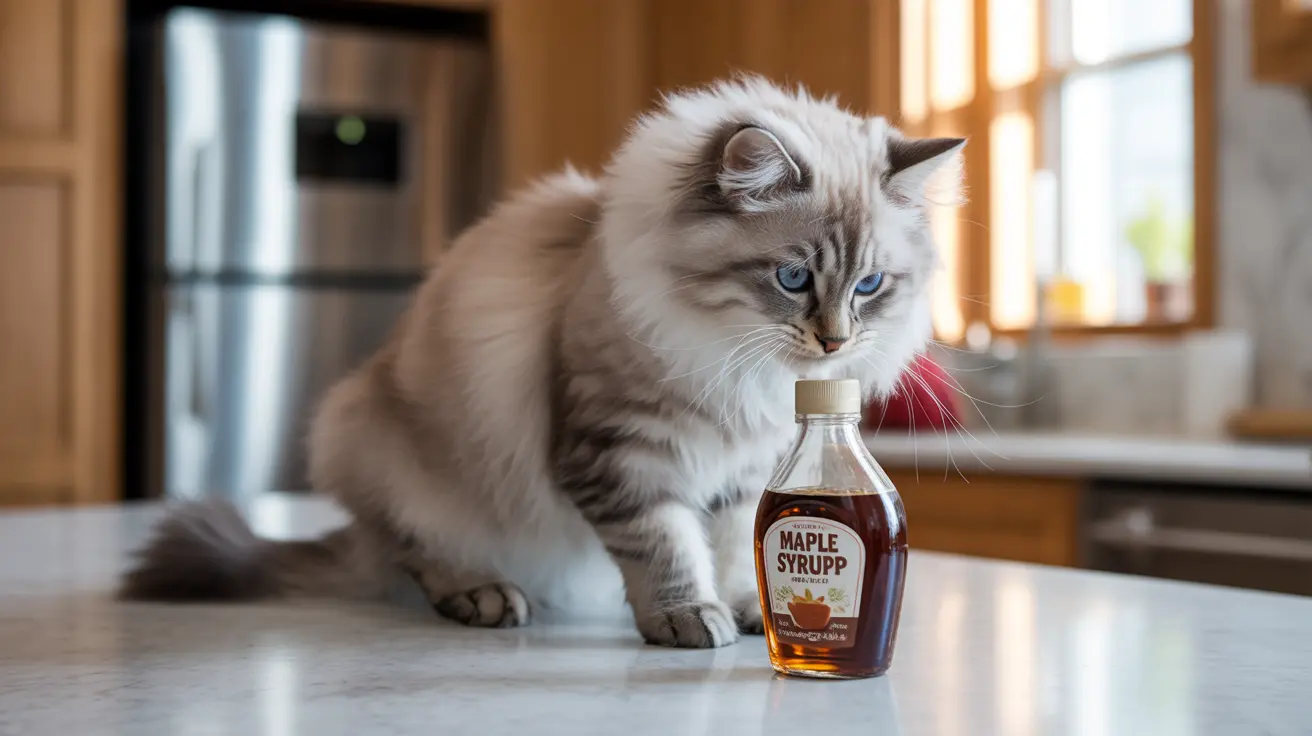Understanding Cats' Relationship with Sweet Foods
Unlike humans and dogs, cats lack the ability to taste sweetness due to a genetic mutation in their taste receptors. This biological fact makes them naturally indifferent to sugary substances like syrup. Their digestive systems are designed for processing proteins and fats, not carbohydrates and sugars.
The Health Risks of Syrup for Cats
Immediate Digestive Concerns
When cats consume syrup, they may experience several immediate digestive issues:
- Vomiting
- Diarrhea
- Stomach discomfort
- Decreased appetite
Long-term Health Implications
Regular exposure to syrup can lead to serious health problems:
- Obesity
- Diabetes
- Dental issues
- Poor coat quality
- Compromised immune system
Different Types of Syrup and Their Risks
Natural Syrups
Pure maple syrup, while not immediately toxic, offers no nutritional benefits to cats and can still cause health issues if consumed regularly. The high sugar content can disrupt their digestive system and contribute to weight gain.
Artificial and Commercial Syrups
These pose additional risks due to artificial sweeteners, preservatives, and additives:
- Xylitol (highly toxic)
- Artificial colors and flavors
- Chemical preservatives
- High fructose corn syrup
What to Do If Your Cat Consumes Syrup
If your cat has ingested syrup, take the following steps:
- Determine the type and amount of syrup consumed
- Monitor for immediate adverse reactions
- Contact your veterinarian if symptoms develop
- Keep the syrup container for ingredient identification
Prevention and Safe Alternatives
Instead of syrup, offer your cat:
- Commercial cat treats
- Small pieces of cooked meat
- Veterinarian-approved supplements
- Fresh, clean water
Frequently Asked Questions
Is it safe for cats to eat or drink syrup like maple syrup?
No, while syrup isn't typically toxic to cats, it's not safe or recommended for consumption. Cats can't properly digest sugars, and syrup offers no nutritional benefits while potentially causing digestive issues and long-term health problems.
What health risks can syrup and sugary foods cause in cats?
Syrup and sugary foods can cause immediate digestive issues like vomiting and diarrhea, and long-term problems including obesity, diabetes, dental problems, and poor overall health.
Can syrup or artificial sweeteners like xylitol harm my cat?
Yes, artificial sweeteners, especially xylitol, can be extremely dangerous for cats. While natural syrup isn't immediately toxic, artificial sweeteners can cause severe reactions and should be avoided entirely.
What should I do if my cat accidentally ingests a large amount of syrup?
Monitor your cat for adverse reactions and contact your veterinarian immediately. Keep the syrup container for reference and follow professional medical advice.
Why do cats not crave sweet foods like syrup compared to humans and dogs?
Cats lack the genetic ability to taste sweetness due to a mutation in their taste receptors. This evolutionary adaptation reflects their natural diet as obligate carnivores, focusing on protein-rich foods rather than sugary substances.
Conclusion
While syrup isn't immediately toxic to cats, it's best to keep it away from your feline companion. The potential health risks far outweigh any momentary curiosity your cat might have. Focus instead on providing a balanced, species-appropriate diet and veterinarian-approved treats to keep your cat healthy and happy.






